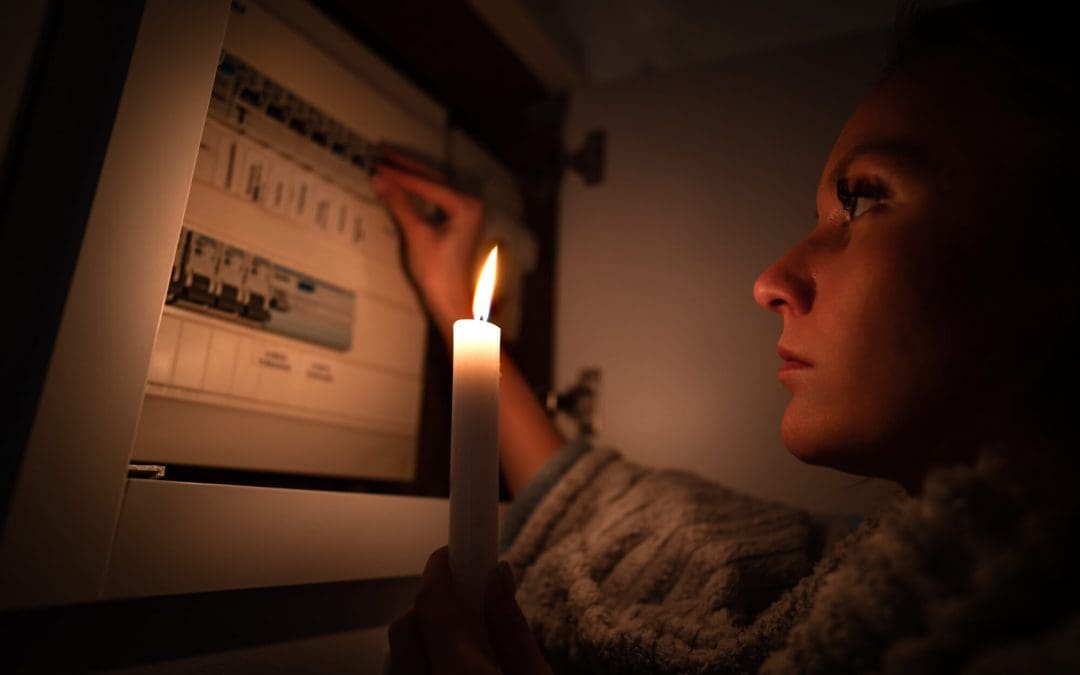Nobody likes power outages, but they happen. Whether it’s due to bad weather, technical glitches, or other unexpected reasons, losing electricity can be a real hassle. The good news? You don’t have to feel helpless when the lights go out. With a little planning, you can stay safe, comfortable, and confident. Here’s how to prepare for a power outage.
Get Your Emergency Kit Together
Think of an emergency kit as your survival toolbox. It doesn’t need to be fancy, but it does need to have the essentials. Start with some bottled water, non-perishable snacks, a flashlight, and extra batteries. You’ll also want a portable phone charger or power bank to keep your devices alive. A battery-powered radio and a manual can opener are also worth adding.
Don’t forget the personal stuff. If you take medication, make sure you have enough to last several days. Got little ones or pets? Stock up on baby formula, diapers, and pet food. Toss in some hygiene basics like hand sanitizer and wet wipes, and you’re good to go. Keep everything in one spot so you can grab it quickly if you need to.
Get Your House Ready When You Prepare for a Power Outage
Preparing your home is just as important as packing your kit. For starters, make sure you’ve got backup lighting. LED lanterns or solar-powered lights are great options—they’re safer and last longer than candles.
Protect your electronics with surge protectors. When electricity comes back, power surges can damage your electronics and appliances. If outages are a regular thing where you live, it might be time to invest in a generator. Just remember to never run a generator indoors because of carbon monoxide risks.
Think about how to stay comfortable, too. If it’s winter, have extra blankets and warm clothes handy. If it’s summer, make sure you have enough water to stay cool and hydrated.
Stay Connected and Informed
When the power’s out, staying in the loop is key. Keep your phone charged and have a backup plan, like a solar charger or a car adapter. If cell towers go down too, a battery-powered or hand-crank radio can help you stay updated on what’s happening.
Write down important phone numbers on paper so you have your contacts listed if your phone dies. It’s also a good idea to have a plan with family or friends to check in on each other during long outages.
Don’t Let Food and Water Go to Waste
When the power goes out, your fridge and freezer become a ticking clock. Try to keep the doors closed as much as possible to keep the cold air in. A full freezer can keep things frozen for about 48 hours, while a half-full one lasts about 24 hours. If you have a thermometer, use it to check the temperature. Anything above 40°F for more than two hours isn’t safe to eat.
Make sure you’ve got enough water, too. Aim for at least a gallon per person per day. If your water supply depends on electricity, like with a well pump, you’ll be glad you stocked up. Fill the bathtubs to have water for flushing toilets.
Stay Safe Above All Else
Safety should always come first during a power outage. Skip the candles and stick with battery-powered lights. Don’t use a generator or grill indoors, and be careful with any alternative heating methods to avoid fires or carbon monoxide poisoning.
If you rely on medical devices that need electricity, have a backup plan ready. This could mean battery-powered options or a generator. Always pay attention to local emergency updates and follow their advice to stay safe.
Power outages don’t have to be overwhelming. With a little preparation, you’ll be ready to handle them like a pro and keep your family safe and comfortable until the lights come back on.
FAQs on How to Prepare for a Power Outage
How long should my emergency kit last?
It’s best to prepare for at least three days. That’s usually enough time for power to return or help to arrive.
What’s the best type of generator for home use?
It depends on your needs. A portable generator can handle a few appliances and costs less, while a standby generator is more expensive but can power your whole house automatically.
Can I use my car to charge devices?
Yes, but use it sparingly. You don’t want to drain your car battery, especially if you might need your car for other things.
How do I know if food in my fridge is safe?
Check the temperature. If it’s been above 40°F for more than two hours, it’s safer to toss it.
Should I stay home during a prolonged outage?
If you’re safe and have supplies, it is usually safe to stay home. But if temperatures are extreme or you need medical support, think about relocating to a safer spot.
First Impression Home Inspections provides inspections to home buyers and sellers in the Shenandoah Valley. Contact us to schedule our services.

